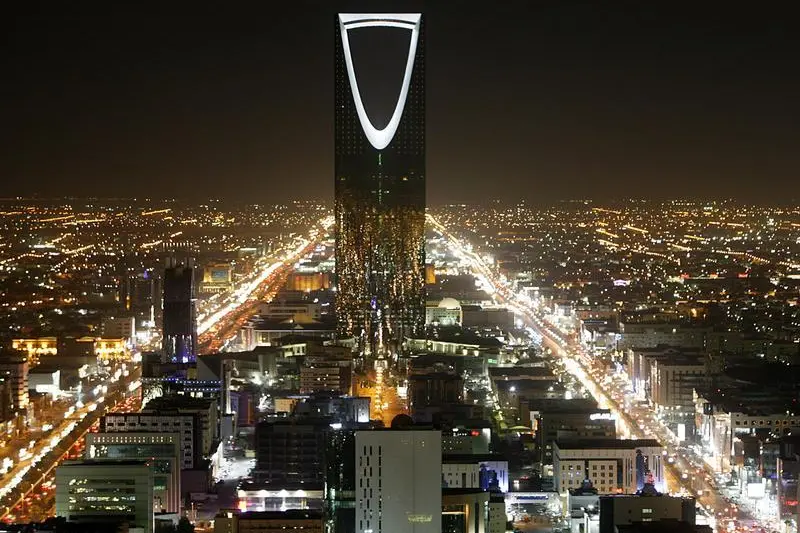PHOTO
Dubai-based Meraas last month revealed plans to turn the emirate’s mountainous Hatta region into an ecotourism destination, siting mountain lodges and “boutique” trailers along the banks of the Hatta dam.
In Saudi Arabia, a royal order in June established nine royal reservations, to be looked after by a board of directors to preserve the natural environment and limit overfishing or overgrazing.
These are some of the efforts the region is making to attract more tourists to its “natural wonders,” with the aim of increasing the contribution tourism makes to their economies that have been reliant on oil.
To date, Saudi Arabia’s tourism sector has been dominated by those visiting for religious purposes — such as for the Hajj pilgrimage this month. Tourist visas for international visitors have been hard to obtain, though the Kingdom is looking to make it easier.
In the UAE, the average tourist is unlikely to even be aware of the mountain ranges, wadis, and nature reserves that lie just a relatively short drive from their sun lounger, choosing to spend their time in the country’s malls, hotel pools and beaches.
But this is due to change, said Anthony Hobeika, chief executive officer, Mena Research Partners.
“We expect ecotourism to be a key traction to investors during the next period, as UAE continues on its tourism push with a diversified and wider range of offerings to international as well as domestic tourists.
Meraas’ latest investment in Hatta demonstrates this potential diversification away from high-end glamor to more rustic attractions. The company’s previous developments include Dubai’s luxury Nikki Beach Residences and the Bulgari Residence.
The mock-up pictures provided by Meraas so far suggest the experience will be more “glamping” than roughing it in the wild.
“Hatta is known for its beautiful scenery — mountains, lakes, wadis, farms, dams and fresh air and the development of ecotourism demonstrates our commitment at Meraas to implementing the vision of our wise leadership by creating economic opportunities for young people, local businesses and entrepreneurs in Hatta,” said Abdulla Al-Habbai, group chairman at Meraas in July.
Globally ecotourism is growing in popularity as a way of minimizing the environmental footprint of travel, and using tourism to benefit locals, preserve culture and look after nature.
It is a trend other areas of the Gulf have capitalized on already, said Benjamin Carey, managing director at the consultancy Carey Tourism. He has previously worked on eco-tourism projects across the Middle East and is currently working on projects in India, Laos and Yemen.
“Emirates like Ras Al-Khaimah are being very clever in terms of creating high-margin and relatively low-impact adventure tourism products in a natural heritage environment,” he said.
“They are investing heavily in marketing because they recognize the importance of destination marketing and management — and also know that the oil-rich Emirati economy needs to diversify.”
“From a demand perspective, it must be remembered that the most important markets for ecotourism are middle-class professionals and urban elites, especially those attracted by five-star hotels in Dubai and Abu Dhabi. Glamping, ecolux, expensive mountain bikes: These are all attractive short-term adventures for (those who) want to experience “ecotourism-lite,” he said.
Last December, Oman made inroads into the eco-tourism sector, with the opening of an Arabian Oryx sanctuary to the public, giving tourists a chance to see the rare desert dweller that had been hunted to extinction in the wild.
In July, the UAE launched its National Ecotourism Project in a bid to improve its marketing of eco-attractions to tourists.
The project will promote UAE’s “natural wonders” across 43 protected areas, including the Wadi Al Wurayah Nature Reserve in Fujairah where you might glimpse a rare Arabian leopard and the Al Wathba Reserve in Abu Dhabi and Ras Al Khor Wildlife Sanctuary in Dubai where flocks of flamingos gather.
A website and app will be launched to raise awareness of these protected areas and encourage travel agencies to include them in travel packages.
“The UAE seeks to leverage the fast-paced development witnessed in all sectors, particularly in the sustainable tourism domain that includes eco-friendly flights, hotels, beaches and campsites,” said Thani bin Ahmed Al-Zeyoudi, minister of climate change and environment.
However, regional developers keen to offer ecotourism breaks will need to work with local communities, Carey warned.
“Ecotourism cannot be imposed on a community. Bedouin, even if increasingly only semi-nomadic, have traditional land rights and must be involved in destination management and development,” he said.
“A green golf course is not eco-tourism. A key dimension of eco-tourism development involves working within the limits of local resources, conserving and safeguarding natural, cultural and social heritage,” he added.
Gulf economies have increasingly benefited from the growing contribution of the tourism sector to their GDP, a welcome development given recent low oil prices.
In Saudi Arabia, the total contribution of travel and tourism to GDP grew by 4.6 percent in 2017, according to statistics from the World Travel and Tourism Council (WTTC).
Last year, the sector contributed SR240.9 billion ($64.2 billion) or 9.4 percent to the Kingdom’s GDP, with the WTTC forecasting this share will reach 10.9 percent by 2028.
In the UAE, total contribution of travel and tourism was 154.1 billion dirhams ($41.95 billion) or 11.3 percent of GDP in 2017, according to WTTC. It is forecast to rise by 4.9 percent this year. By 2028, the sector will represent 10.6 percent of GDP, according to the council’s estimates.
Copyright: Arab News © 2018 All rights reserved. Provided by SyndiGate Media Inc. (Syndigate.info).





















